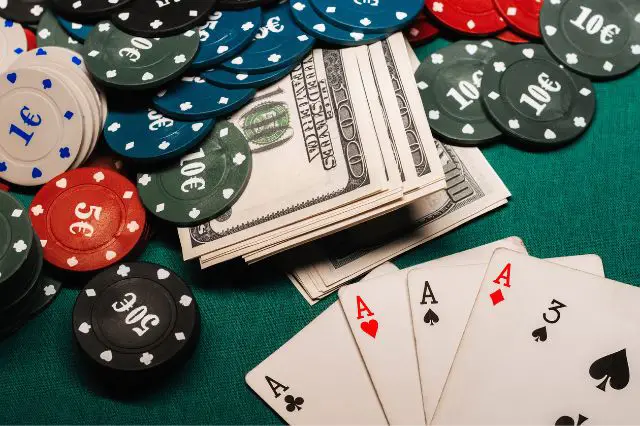Poker is a game of skill and strategy. If you want to become a successful poker player, you need to understand the essential poker strategies that will help you improve your chances of winning.
In this blog post, we’ll be discussing the top 10 poker strategy tips to help you win the game.
1. Start with Strong Starting Hands
The starting hand is the foundation of your poker game. If you start with a weak hand, you’ll have a hard time winning the game. It’s essential to know which starting hands to play and which ones to fold.
The best starting hands in poker are high pairs like AA, KK, and QQ, as well as strong hands like AK and AQ. If you’re playing Texas Hold’em, you’ll need to have a good understanding of the hand rankings and which hands are better than others.
2. Position Matters
Position is crucial in poker. The position that you’re in can significantly impact your chances of winning. Being in a good position means you have more information than your opponents, which gives you an advantage.
If you’re in late position, you can see what other players do before it’s your turn to act, giving you more options for your own play. As it allows you to see how other players bet, you can make more informed decisions.
Keep an eye on your position and adjust your game plan accordingly.
3. Avoid Tilt
Tilt is a poker term used to describe a player who has lost their cool and composure after a bad hand. In other words, it’s a player’s emotional state, which can affect their decision-making ability.
When a player is on tilt, they’re more likely to make mistakes and make poor decisions. You must learn to control your emotions in poker and avoid going on tilt because going on emotional tilt can lead to costly mistakes.
To avoid tilt and carry on in the game, it is imperative to remain patient and make calculated decisions regardless of the result.
4. Bluff Carefully
Bluffing is an essential part of poker, but it’s also a risky one. You should bluff only when you have a strong reason to do so. A poorly timed bluff can be disastrous and can ruin your chances of winning the game.
5. Play with a Strategy
Poker requires a strategy. You need to have a clear understanding of your goals and how to achieve them. A good poker strategy considers all aspects of the game, including position, hand selection, and your opponents’ playing styles.
For example recognizing the right time to relinquish a hand can save you a lot of chips, and you can use them in the right situations later in the game.
6. Study Your Opponents
Understanding your opponents is crucial in poker. You need to know their playing style, their tendencies, and what they’re capable of. This information will help you make better decisions and improve your chances of winning.
7. Don’t Be Predictable
Predictability will make you vulnerable in poker. If your opponents can read you easily, they’ll know when to fold and when to bet. You need to be unpredictable to keep your opponents guessing and gain an advantage over them.
8. Control Your Bankroll
Your bankroll is the money you have set aside for poker. Managing your bankroll is an essential component of poker strategy. It’s important to manage your bankroll carefully and avoid playing with money you can’t afford to lose.
You should only be playing with money that you are willing to lose. Having discipline with your bets will help you thrive in the long term. Always keep in mind that poker is a game of variance, and you can lose money even if you play well.
9. Practice Patience
Patience is key in poker and the most important characteristic of a successful poker player. You need to be mindful of the cards that are being dealt and have the patience to wait for the right hand to play.
Rushing into situations can lead to costly mistakes, so make sure you bide your time. So don’t be in a hurry to play every hand, and don’t chase losses.
Take your time, wait for good hands, and make the most out of them.
10. Keep Learning
Poker is a constantly evolving game, and there is always something new to learn. Keep studying, keep reading, learn from experts, and keep practicing to improve your game.
Attend seminars, watch online poker videos, and read poker books to gain new insights and ideas. The more you play and learn, the better you will get.
Conclusion
Poker is a game of skill and strategy that requires discipline, patience, and a clear understanding of the game. By following these top 10 poker strategy tips, you’ll be on your way to becoming a successful poker player.
Remember, it’s not just about winning; it’s about making the right decisions and playing your best game.
So, keep practicing, stay focused, and good luck at the tables!



Leave a Comment